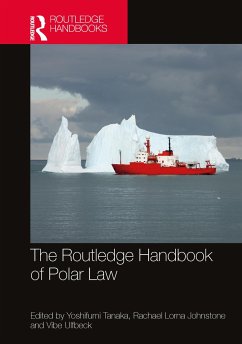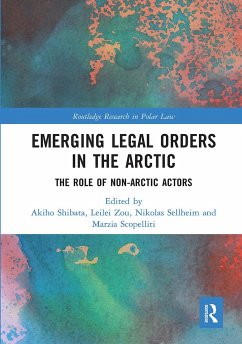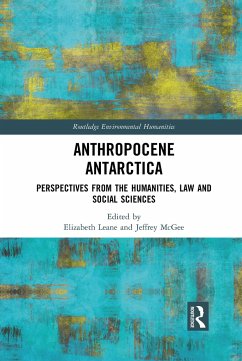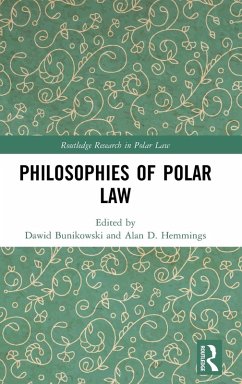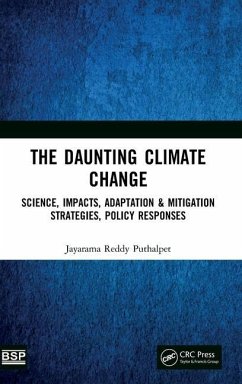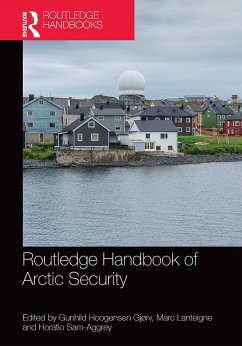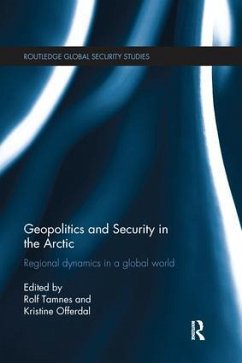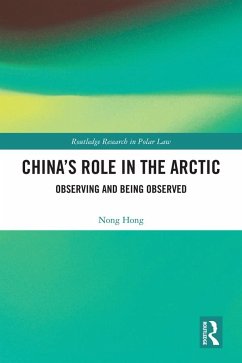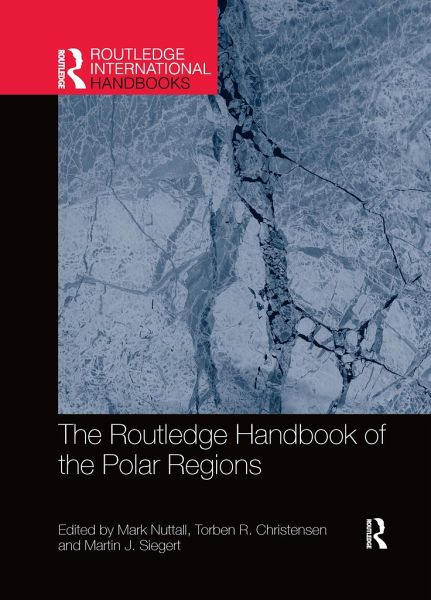
The Routledge Handbook of the Polar Regions
Versandkostenfrei!
Versandfertig in 6-10 Tagen
49,99 €
inkl. MwSt.
Weitere Ausgaben:

PAYBACK Punkte
25 °P sammeln!
The Routledge Handbook of the Polar Regions is an authoritative guide to the Arctic and the Antarctic through an exploration of key areas of research in the physical and natural sciences and the social sciences and humanities. It presents 38 new and original contributions from leading figures and voices in polar research, policy and practice, as well as work from emerging scholars.This handbook aims to approach and understand the Polar Regions as places that are at the forefront of global conversations about some of the most pressing contemporary issues and research questions of our age. The v...
The Routledge Handbook of the Polar Regions is an authoritative guide to the Arctic and the Antarctic through an exploration of key areas of research in the physical and natural sciences and the social sciences and humanities. It presents 38 new and original contributions from leading figures and voices in polar research, policy and practice, as well as work from emerging scholars.
This handbook aims to approach and understand the Polar Regions as places that are at the forefront of global conversations about some of the most pressing contemporary issues and research questions of our age. The volume provides a discussion of the similarities and differences between the two regions to help deepen understanding and knowledge. Major themes and issues are integrated in the comprehensive introduction chapter by the editors, who are top researchers in their respective fields. The contributions show how polar researchers engage with contemporary debatesand use interdisciplinary and multidisciplinary approaches to address new developments as well as map out exciting trajectories for future work in the Arctic and the Antarctic.
The handbook provides an easy access to key items of scholarly literature and material otherwise inaccessible or scattered throughout a variety of specialist journals and books. A unique one-stop research resource for researchers and policymakers with an interest in the Arctic and Antarctic, it is also a comprehensive reference work for graduate and advanced undergraduate students.
This handbook aims to approach and understand the Polar Regions as places that are at the forefront of global conversations about some of the most pressing contemporary issues and research questions of our age. The volume provides a discussion of the similarities and differences between the two regions to help deepen understanding and knowledge. Major themes and issues are integrated in the comprehensive introduction chapter by the editors, who are top researchers in their respective fields. The contributions show how polar researchers engage with contemporary debatesand use interdisciplinary and multidisciplinary approaches to address new developments as well as map out exciting trajectories for future work in the Arctic and the Antarctic.
The handbook provides an easy access to key items of scholarly literature and material otherwise inaccessible or scattered throughout a variety of specialist journals and books. A unique one-stop research resource for researchers and policymakers with an interest in the Arctic and Antarctic, it is also a comprehensive reference work for graduate and advanced undergraduate students.





